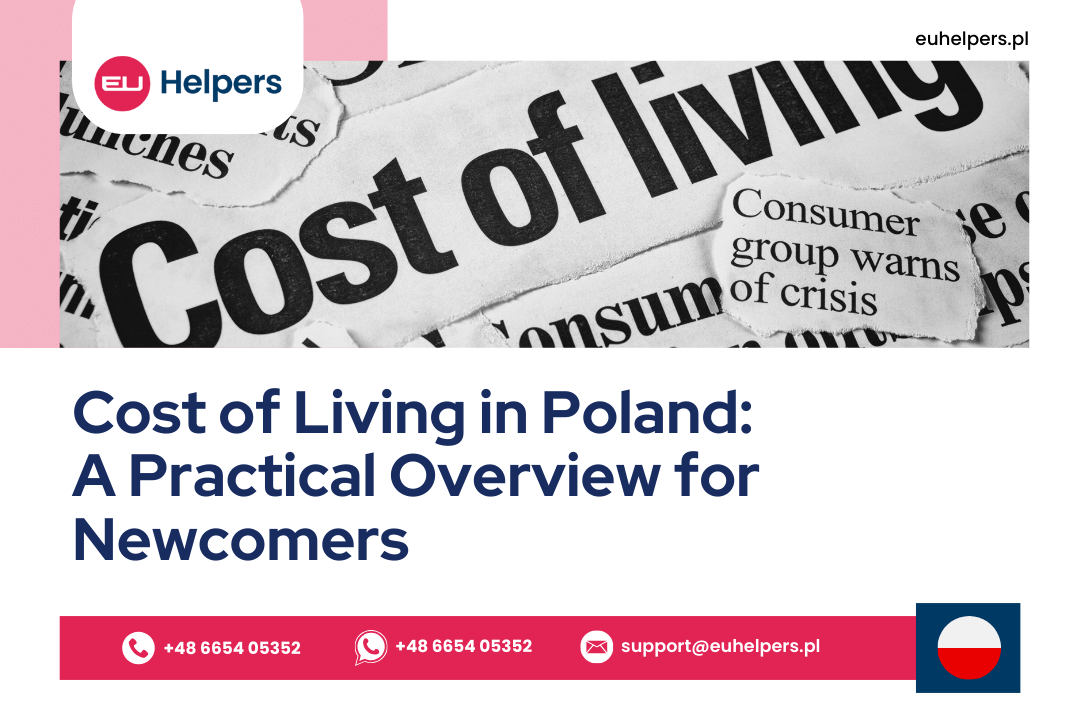Poland has become an increasingly popular destination for expatriates due to its vibrant culture, rich history, and relatively low cost of living compared to many Western European countries. In this practical overview, we will explore various aspects of the cost of living in Poland for newcomers.
Housing:
One of the significant contributors to the cost of living is housing. In Poland, rental prices vary depending on the city. Warsaw, the capital, tends to be more expensive than other cities. On average, you can expect to pay around 2500-4000 PLN per month for a one-bedroom apartment in the city center, while the cost drops to 1500-3000 PLN in the suburbs. Utilities, including heating, electricity, cooling, water, garbage, and internet, may add another 500-800 PLN to your monthly expenses.
Food and Groceries:
Poland offers a diverse range of affordable and high-quality food products. A monthly grocery bill for a single person can range from 600 to 1000 PLN, depending on dietary habits and preferences. Local markets and discount supermarkets like Biedronka, Lidl, and Tesco provide budget-friendly options. Eating out is also relatively inexpensive, with a meal at a mid-range restaurant costing around 40-80 PLN.
Transportation:
Public transportation in Poland is efficient and cost-effective. Monthly public transport passes in major cities range from 100 to 150 PLN. If you prefer owning a car, be prepared for additional expenses like fuel (approximately 5-6 PLN per liter), insurance, and maintenance. While the cost of purchasing a car can vary, a mid-range model may set you back around 60,000 to 100,000 PLN.
Healthcare:
Poland has a public healthcare system, and contributions are mandatory for residents. The monthly cost is around 300 PLN for those employed, with employers covering a portion. Expatriates may choose private health insurance for additional coverage, which can range from 100 to 300 PLN per month. Medical services in Poland are generally affordable compared to Western Europe.
Education:
For those with children, understanding the cost of education is crucial. Poland has a mix of public and private schools. Public education is free, but some expatriates opt for private international schools, which can range from 10,000 to 30,000 PLN per year. Additionally, higher education costs vary, with tuition fees for international students ranging from 5,000 to 15,000 EUR per year.
Entertainment and Recreation:
Poland offers a rich cultural and recreational scene. Cinema tickets cost around 20-30 PLN, and a gym membership can range from 80 to 150 PLN per month. Cultural events and festivals often have affordable or even free admission. Enjoying the country's natural beauty, including its many parks and outdoor activities, can be a cost-effective way to spend leisure time.
Taxes:
Understanding the tax system is essential for financial planning. Poland has a progressive income tax rate, with the highest bracket reaching 32%. Social security contributions are also mandatory for employees, totalling around 22% of the gross salary, shared between the employer and the employee.
In summary, the cost of living in Poland is generally lower than in many Western European countries, making it an attractive destination for expatriates. However, individual circumstances and lifestyle choices greatly influence expenses. Being aware of these costs allows newcomers to plan their budget effectively and fully enjoy the diverse offerings of this welcoming and culturally rich country.

